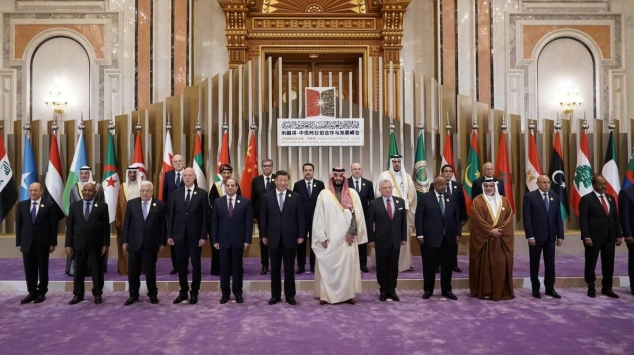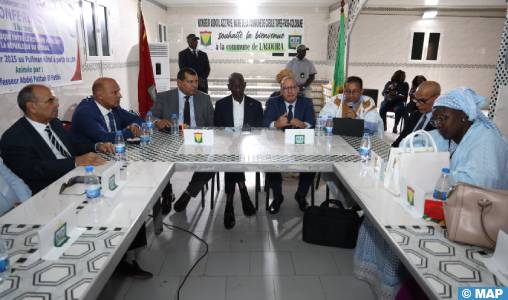The challenges which the countries of the Arab region are currently facing, and which threaten their security and stability, are sometimes due to the policies and behaviors of some Arab countries towards other Arab nations, said King Mohammed VI.
In a speech to the 1st China-Arab Summit, held Friday in Riyadh, Saudi Arabia, the Sovereign said that “it must be emphasized that this situation, which is fraught with peril, cannot be successfully addressed without compliance with the principles of neighborliness, respect for the national sovereignty and territorial integrity of states, and non-interference in their internal affairs.”
“I note, with deep satisfaction, how keen the People’s Republic of China has been to promote security and stability in the Arab region, and to support Arab countries in their efforts to tackle current crises and mitigate their impacts,” underlined the King in the address that was read on his behalf by Head of Government Aziz Akhannouch.
China has been leveraging its diplomatic wisdom and insight to bridge gaps and make dialogue prevail “in order to overcome the turmoil and instability from which some Arab sister countries have been suffering”, said the Sovereign.
Referring to the Palestinian question, the Sovereign said that “China’s firm support for the just Palestinian cause is a precious international asset that can be conducive to a just and lasting solution” to this question, in keeping with the relevant international legitimacy resolutions, foremost of which are those relating to al-Quds al-Sharif.
“As Chairman of the al-Quds Committee, I cannot but express my deep appreciation for China’s unremitting support for the preservation of the legal and historical status of the Holy City and its rejection of any unilateral decisions that would undermine efforts to revive the peace process, remove the case of the city of al-Quds from the negotiating table, and dissociate it from the other final-status issues,” noted the King.
The Sovereign added: “Such actions would increase tensions and complicate matters at a time when we – together with other peace-loving parties – are seeking to bring about the right conditions to make the peace option prevail and ensure that the Palestinian and Israeli sides go back to the negotiating table.”
King Mohammed VI also affirmed, on this occasion, that this first Arab-China Summit is a historic event and a watershed in the ties between the two sides.
“It offers a suitable opportunity to add yet another building block to the solid edifice of the longstanding relations between the Arab world and China,” said the Sovereign.
The King stressed further that this Summit gives a chance to explore future prospects for the establishment of a special partnership “that would hold a prominent place in the Arab region’s relations with its various partners – be they countries, groupings, or regional or continental organizations.”
The Sovereign added that “the Summit is an opportunity to recall the cultural dimensions and the historical ties based on an intricate combination of human relations, fruitful cultural interaction, and positive mutual influence dating back to the ancient Silk Road.”
These time-honored relations were developed through cultural exchanges and interactions can be traced back to time immemorial, said the King, noting that “Not only do these ties link the past to the present, but they also allow us, today, to look forward to innovative, continuous cooperation. And perhaps one of the most promising prospects of that relationship is the current Arab-China cooperation within the framework of the Belt and Road Initiative.”



